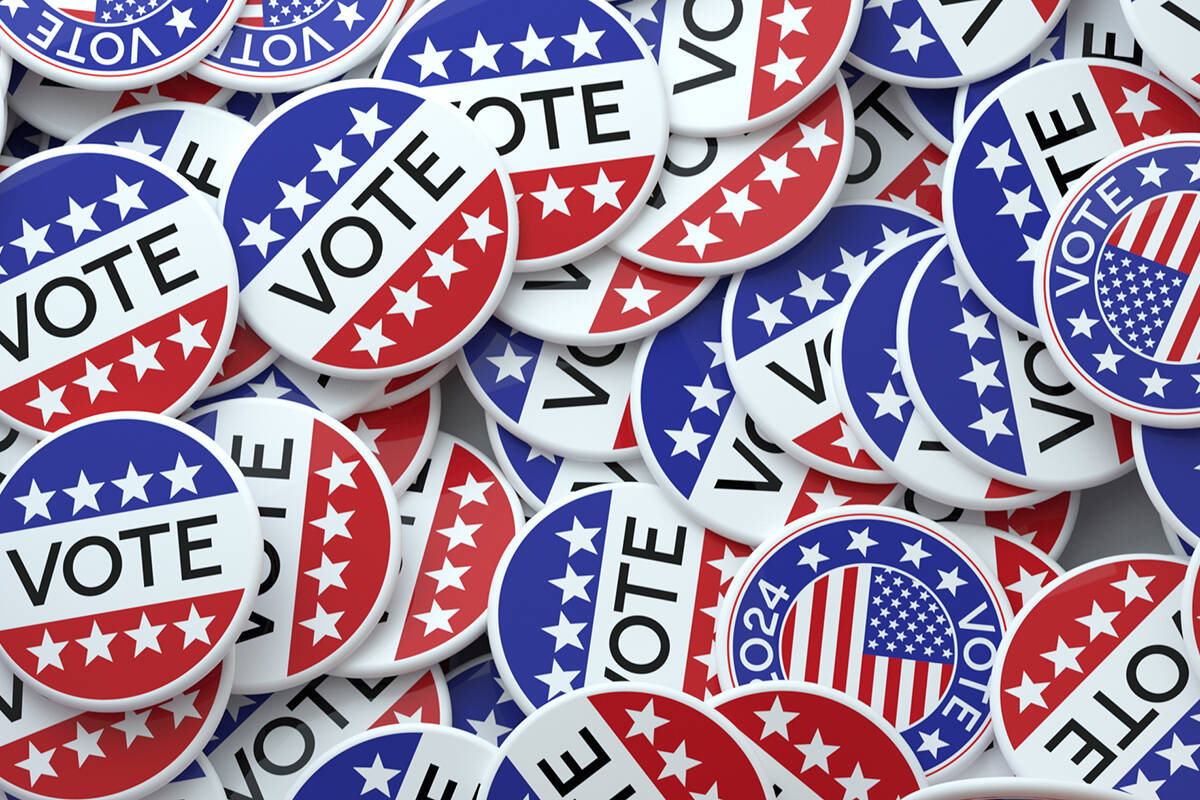5 things to know ahead of the primary and GOP caucus
You will soon get mail from your county clerk about the upcoming presidential preference primary, and you might find that your favorite candidate is not on the ballot. Don’t panic.
The state-run primary and Nevada GOP caucus have sparked confusion among voters about what is going on and how they can pick their favorite candidate for president.
A new law, coupled with the Nevada Republican Party’s desire to stick with its traditional way of picking a presidential nominee, resulted in two different nominating processes happening two days apart from each other. The primary will take place Tuesday, Feb. 6, and the caucus is set for Feb. 8.
Here are some answers to questions that will hopefully clear up the confusion.
What’s the difference between the caucus and the primary?
Caucuses are meetings where local members of a political party nominate their preferred presidential candidate. They’re privately funded by the parties and are typically held at a precinct level.
A primary is run by state and local governments through a secret ballot. Nevada has closed primaries, meaning that you must be registered with the party to participate. A Democrat, for instance, cannot vote on the Republican ballot. Nevada also has same-day voter registration, so anybody can switch their party the day of the primary and participate in the primary of their choice.
The rates of participation also differ between the two, one of the reasons why Nevada politicians made efforts in recent years to do away with caucuses. Voter participation is generally higher in primaries than caucuses, mostly due to the time required to participate in them.
Nevada has a universal mail-ballot system in place in which every registered voter gets a ballot mailed to them unless they opt out, making it even easier to participate in the primary. The Nevada GOP’s caucus, however, has an option for participants to fill out a paper ballot and drop it off, so they don’t need to stay the entire time.
Why are two nominating processes happening?
Doing away with caucuses was a big goal of late Sen. Harry Reid and other Nevada Democrats who believed the caucuses were messy and unfair, and that primaries would allow more people to participate.
In 2021, the Democratic majority legislature passed the bipartisan Assembly Bill 126, establishing a presidential preference primary election to be held by the state for each major party on the first Tuesday in February of each presidential election year, unless only one candidate files in a party.
Despite that new law, the Nevada Republican Party decided to hold a caucus — the process it’s been using for 40 years — anyway. The Nevada GOP and the state fought in court over the two processes, and a judge ultimately ruled that the state-run primary does not prevent political parties from holding a caucus, and that the law does not bind either party to the results of the presidential preference primary.
Which candidates will be in which nominating process?
Republican presidential candidates had to choose which nominating process to sign up for, as they can participate only in one. This explains why you don’t see certain candidates on the ballots.
The following candidates signed up (and paid a hefty $55,000 fee) for the Republican caucus: Ryan Binkley and Donald Trump.
Candidates participating in the Republican state-run primary include Nikki Haley, John Castro, Heath Fulkerson, Hirsh Singh and Donald Kjornes.
Some Republican candidates, such as Mike Pence and Tim Scott, signed up for the state-run primary but have since suspended their campaigns. Vivek Ramaswamy, Ron DeSantis and Chris Christie signed up for the caucus but have since suspended their campaigns.
Democrats’ presidential primary ballot will include Joe Biden, Marianne Williamson and many other, lesser known candidates. You can visit the secretary of state’s website to see all of them.
How will each of the processes work?
For the primary: The early voting period runs from Jan. 27 to Feb. 2. Mail ballots will begin to be sent out to the military and people overseas or out of state near the end of the year, and registered voters will begin to receive their mail ballots mid-January. Early voting and election day polling locations for each county will be posted to the secretary of state’s website. To vote, you can send in your completed mail ballot, drop it off at polling locations, or turn it in at a polling location to vote in person instead. On Election Day, polls will close at 7 p.m. and unofficial results will begin to be posted after the polls close.
For the caucus: All locations will have a uniform start time of 5 p.m. on Feb. 8. Voters must show their ID to vote, and paper ballots will be used, although there will be a drop-and-go feature for people to cast their vote and leave. You can find locations for the caucus on the Nevada GOP’s website.
The Nevada Republican Party says the results will be finalized Feb. 8 and released to the public. Precincts will nominate delegates, and in May, Republicans at the state convention will elect national delegates who will go to the Republican National Convention in Milwaukee in July.
If I’m a Republican, which process should I vote in?
It’s entirely up to you. Because the Nevada Republican Party ultimately decides which election nomination process holds the most weight, the results of the caucus will determine the candidate.
The state-run primary, on the other hand, will be more symbolic. But there’s nothing stopping people from participating in both, according to Nevada Republican Party Chairman Michael McDonald.
The caucus has, however, come with criticism that it was created to favor Trump. Some of Nevada’s Republican electors who tried to submit false documents declaring Trump the winner of the Silver State in 2020 (and were recently indicted by a grand jury on charges they’ve pleaded not guilty to) are the ones planning the caucus. Other presidential candidates have expressed concerns that Nevada Republican Party leadership is a puppet to Trump.
It might come down to what ballot your favorite candidate will appear on. If Haley is your favorite, for example, perhaps consider participating in the primary.
Do you have any more questions we can answer? Contact Jessica Hill at jehill@reviewjournal.com or fill out a Google form linked here. The Las Vegas Review-Journal has another story answering questions about elections in 2024. Follow @jess_hillyeah on X.


















